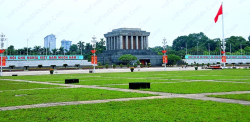Journey Through History: The Ho Chi Minh Trail Museum
Listing Details
Hanoi, Ha Noi
1 year ago
Additional Details
103
6.8k
Description
The Ho Chi Minh Trail Museum stands as a testament to one of the most remarkable feats of ingenuity, determination, and resilience in the annals of modern warfare. Nestled in the heart of Vietnam, the museum commemorates the legendary Ho Chi Minh Trail, an extensive network of supply routes used during the Vietnam War. The trail played a pivotal role in the war effort, allowing North Vietnam to sustain its southern counterpart with crucial supplies and military reinforcements.
Today, the museum stands as a symbol of national pride, preserving the memories of those who fought, suffered, and triumphed during those tumultuous years.
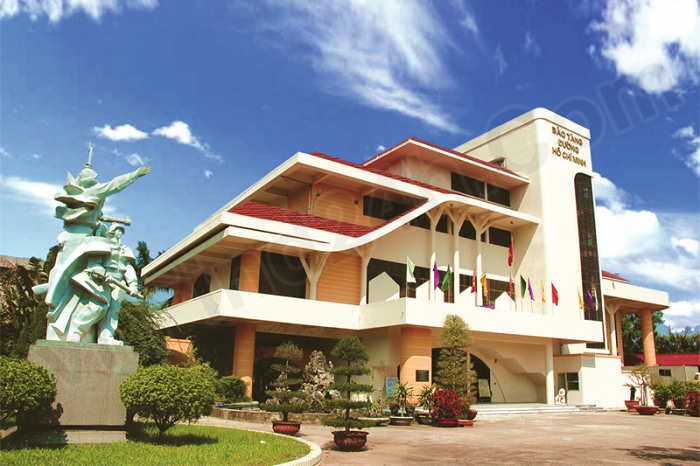
1. Historical Context
The Vietnam War, known as the Second Indochina War, was a protracted conflict that spanned two decades, from the mid-1950s to the mid-1970s. During this time, North Vietnam, under the leadership of Ho Chi Minh, sought to unify the country under a communist regime, while South Vietnam, supported by the United States and other Western allies, fought to maintain its sovereignty and prevent the spread of communism.
To support their military campaign in the south, the North Vietnamese needed an efficient way to transport troops, weapons, and supplies through the dense jungles and rugged terrain of neighboring Laos and Cambodia, which served as a buffer zone between North and South Vietnam. The ingenious solution came in the form of the Ho Chi Minh Trail.
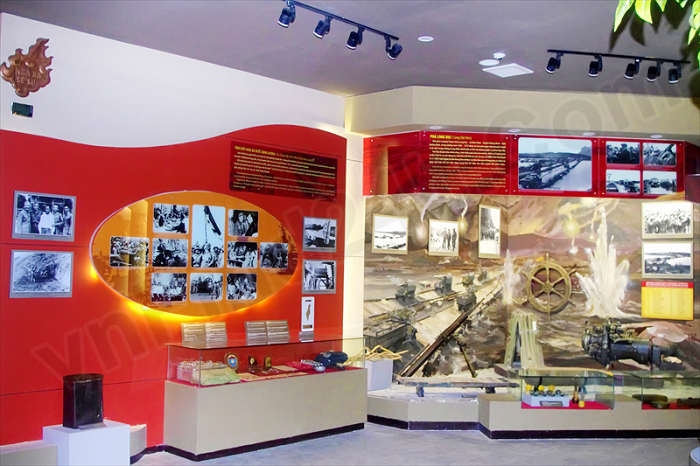
2. The Ho Chi Minh Trail: A Marvel of Engineering
The Ho Chi Minh Trail was not a single path but rather a vast and intricate network of trails, footpaths, roads, and waterways stretching over 1,000 miles (1,600 kilometers). It meandered through the hostile terrain of Laos and Cambodia, traversing dense forests, mountain ranges, and river valleys. The trail was meticulously designed to avoid aerial detection by the U.S. forces, who launched massive bombing campaigns in a futile attempt to disrupt the supply chain.
The construction and maintenance of the trail involved an extensive labor force, including soldiers, porters, and local villagers. They worked tirelessly, often under harsh conditions, to ensure that the flow of supplies remained steady despite the relentless bombings. The trail's existence was a remarkable example of human tenacity and resourcefulness in the face of overwhelming odds.
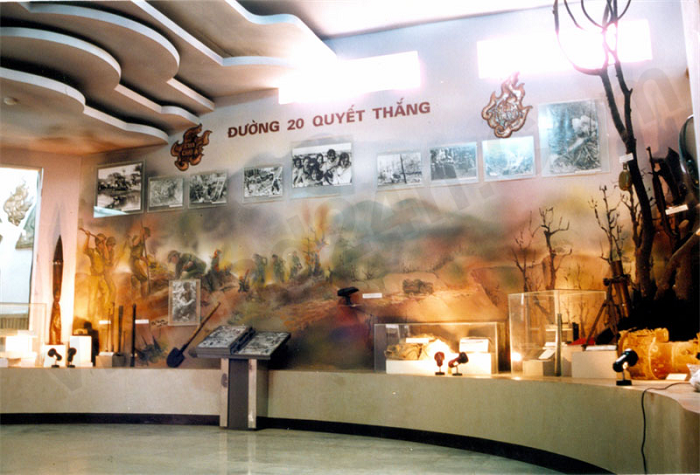
3. Strategic Significance
The Ho Chi Minh Trail played a critical role in the Vietnam War. By using this supply network, the North Vietnamese were able to keep their southern counterparts armed and fed. Weapons, ammunition, food, medical supplies, and other essentials were transported through the trail, ensuring that the communist forces remained a potent threat to the South Vietnamese and their American allies.
Moreover, the trail provided a safe conduit for the movement of troops. North Vietnamese soldiers could infiltrate South Vietnam, engage in combat, and then retreat back to their bases in the north using the same network. This allowed them to maintain their guerrilla warfare tactics, making it difficult for the U.S. and South Vietnamese forces to achieve a decisive victory.
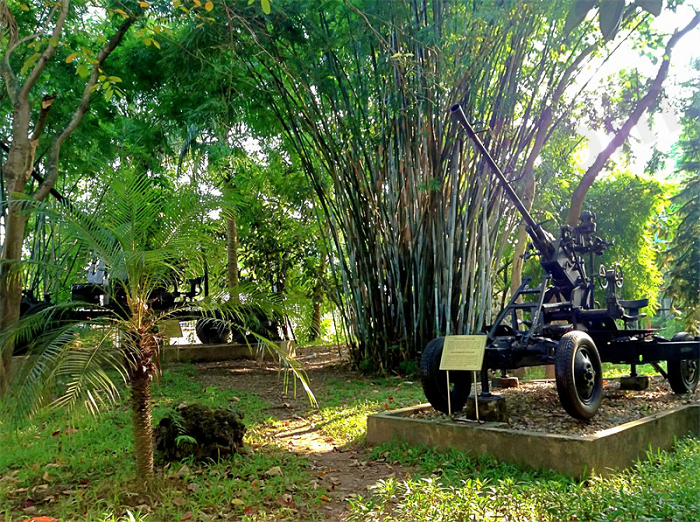
4. The Museum: Preserving the Legacy
The Ho Chi Minh Trail Museum serves as a tribute to the countless men and women who sacrificed their lives and livelihoods in the pursuit of their ideological convictions. Located near the historical city of Hanoi, the museum offers visitors a comprehensive understanding of the trail's significance and its role in the war.
Upon entering the museum, visitors are greeted with historical exhibits, photos, and artifacts that illustrate the construction and operation of the trail. Interactive displays allow guests to experience the challenging conditions faced by those who traversed the trail during the war. Testimonies from veterans and survivors provide a personal touch, offering a glimpse into the human aspect of the conflict.

One of the highlights of the museum is a meticulously reconstructed section of the Ho Chi Minh Trail. Here, visitors can walk along a stretch of the trail, surrounded by lifelike replicas of jungle foliage, tunnels, and wooden bridges. This immersive experience offers a sense of the difficulties and dangers that those who used the trail encountered daily.
5. The Trail's Legacy
The Ho Chi Minh Trail is not just a historical artifact but a living symbol of resistance and determination. Its successful operation against all odds underscores the power of human spirit and adaptability. The trail's legacy lives on in the hearts of the Vietnamese people, reminding them of their indomitable resilience in the face of adversity.
In addition to being a museum, the Ho Chi Minh Trail site also serves as an educational center for future generations. School groups and tourists alike visit the museum to learn about their country's past, fostering a sense of national identity and appreciation for the sacrifices made by previous generations.
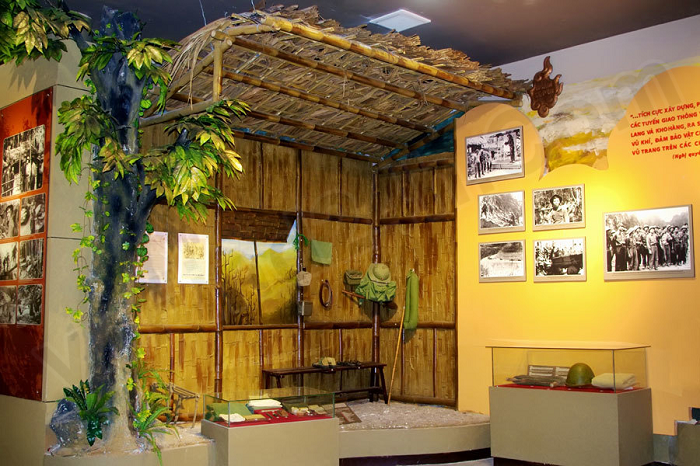
The Ho Chi Minh Trail Museum stands as a living testament to the indomitable spirit of the Vietnamese people during one of the most turbulent periods in their history. The trail's role in supporting the North Vietnamese forces during the Vietnam War is a remarkable story of ingenuity, determination, and resilience.
As visitors walk through the museum and explore the recreated section of the trail, they are transported back in time to an era of conflict and turmoil. The stories of heroism, sacrifice, and survival etched into the trail's legacy serve as a poignant reminder of the human cost of war and the enduring pursuit of freedom.
The Ho Chi Minh Trail Museum encapsulates the essence of Vietnam's historical struggle and its triumph over adversity. It stands not just as a memorial but also as an inspiration for future generations to cherish their heritage, embrace their identity, and strive for peace and unity. The museum urges us to learn from the past, to understand the complexities of war, and to appreciate the sacrifices made by those who came before us. Only through such reflections can we hope to build a more compassionate and harmonious world.
Show More













